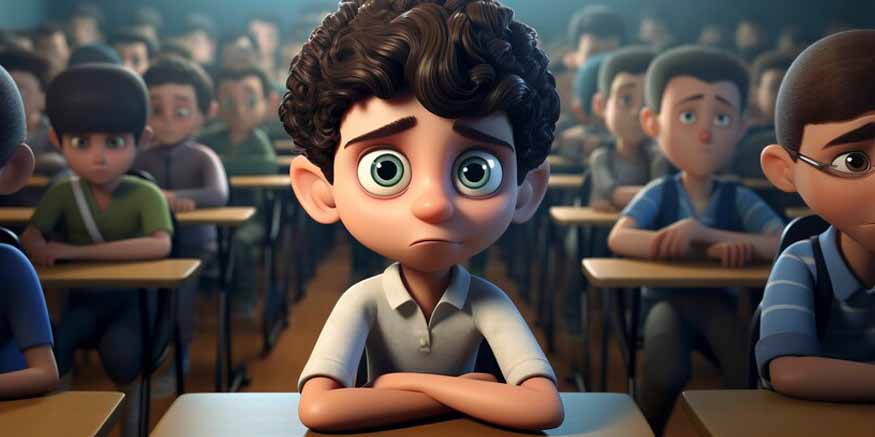CBSE vs ICSE: Which One to Choose for Your Child?

Every parent desires the best for their child. As a parent, you are often worried about providing a good education for your children. Choosing the appropriate curriculum is one of the most critical decisions for parents. It can affect their educational experience by influencing their learning style, interests, and long-term goals.
With so many alternatives available, it’s normal to be confused and intimidated. CBSE vs ICSE are often regarded as two of the best education boards in India. This blog strives to bring clarity by laying out the difference between CBSE and ICSE. This allows you to pick a curriculum that is best suited to your child’s needs.
Understanding CBSE vs ICSE
Choosing the correct education board for your child, such as CBSE or ICSE, can develop them at an early age. It plays an important part in their career and personality development. Let us discover a bit more about them;
CBSE
The Union Government of India created the Central Body of Secondary Education (CBSE) in 1962. It is an Indian national board of education that follows a nationalized curriculum. The NCERT Curriculum forms the basis for the CBSE Curriculum.
CBSE emphasizes a more practical and application-oriented learning style. It prepares students for a variety of competitive tests. It supports a student-centered approach by providing interactive educational resources.
ICSE
The University of Cambridge Local Examinations Syndicate formed the Indian Certificate of Secondary School (ICSE) in 1958. The Council for the Indian School Certificate Examination regulates this private board. It follows a more globalized curriculum that focuses on English Language and Literature. The ICSE curriculum emphasizes comprehensive education and in-depth subject knowledge which is application-driven.
ICSE requires students to take examinations in 6 subjects. Three categories have been assigned to separate the subjects. The first category consists of mandatory subjects. The second and third categories allow you to choose your subjects. It also promotes performing valuable and productive activities.
Difference Between CBSE and ICSE
The choice between CBSE and ICSE for a student’s education is a challenging decision to make. Let’s look at the main differences between the two;
- CBSE & ICSE Syllabus Difference
- Medium of Instruction
- Acceptability
- Level of Ease
- Transferability
- Exam Pattern
- Grading System
- Competitive Edge
The CBSE syllabus is more uniform and structured. It places greater emphasis on the basics and important subjects. The curriculum focuses on science and mathematics.
The ICSE curriculum covers a greater range of subjects than the core curriculum. This makes it more comprehensive and adaptable. ICSE places equal focus on language, arts, and science.
CBSE schools use both English and Hindi as the medium of instruction. ICSE schools use English and it is mandatory.
CBSE Board marks are generally accepted in almost all universities, irrespective of which program you choose. International schools and colleges prefer ICSE Certification.
Compared to the ICSE Syllabus, the CBSE Syllabus seems less complicated. It is more organized and more concise. ICSE includes more internal examinations and concepts that are used on a practical level.
ICSE Board transfers to CBSE are only possible if the student and family relocate. CBSE requires students to study 9th and 11th standards from CBSE. ICSE Board does not accept students from other boards in Classes 10th and 12th.
Known for their in-depth and holistic approach, ICSE exams cover a wide range of subjects. It contains more explanatory and analytical questions, which encourage critical thinking.
CBSE examinations, but, tend to be more organized. It focuses on key subjects and a combination of aim and subjective questions.
The CBSE grade system goes from A1 (highest) to E (lowest). The grades are dependent on the student’s performance in every subject. A student earns an A1 grade in a subject if they get 90% or more points.
The ICSE, so, has a grading scale ranging from A (highest) to F (lowest). The calculation of grades is based on the student’s total performance, with a small percentage of marks necessary for each phase. For example, a student who gets 80% or more in a course will get an A.
CBSE is good for students who wish to sit for competitive examinations like engineering and medicine. The reason is that the CBSE board’s syllabus is based on the 10+2 curriculum. This board is good for students who take exams like IIT JEE or NEET. The course syllabus is academic and informative.
Whereas, the ICSE board includes a comprehensive course. It can help you prepare for the IELTS or TOEFL examinations.
Benefits of ICSE over CBSE
The ICSE curriculum is comprehensive and experiential. It gives more focus on the student’s overall development. This covers academic, social, and physical development. It is globally recognized and helps students in pursuing higher education worldwide. It gives you greater flexibility in choosing subjects.
ICSE employs a conventional and subject-based approach, with each subject studied in isolation. It places a lot of emphasis on English, which is a vital worldwide language and a valuable skill in the modern era. It emphasizes critical thinking and communication skills.
Benefits of CBSE over ICSE
The CBSE is a national education board. It gets its recognition from the Indian government and many universities. The curriculum is flexible and integrated. It allows us to explore many subjects in a more interconnected and comprehensive way.
CBSE gives more emphasis on science and mathematics. The NCERT books are methodically made to cover the complete CBSE curriculum. They include detailed explanations of ideas. They cover theories and principles from various areas. This ensures that students have a firm knowledge of the foundations.
In conclusion, ICSE emphasizes analytical thinking and a holistic approach. The CBSE Board provides an organized curriculum with a focus on competitive examinations. The decision between CBSE vs ICSE boards depends on a student’s academic goals. It also depends upon their learning style and career goals. Unlock your child’s potential with the right curriculum at Billabong International High School. Our programs are intended to promote both academic performance and personal growth. Contact now!








